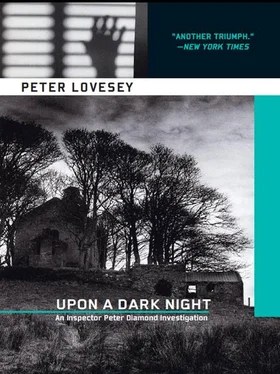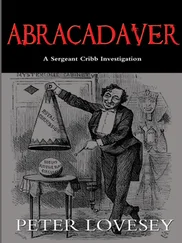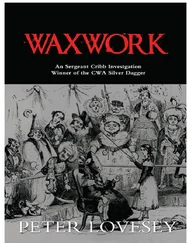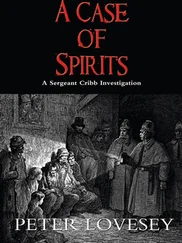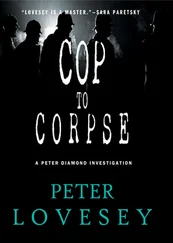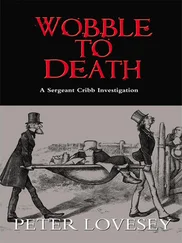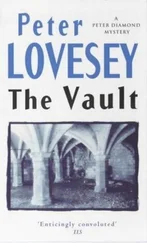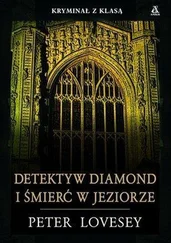They returned to the incident room to find that a message had been left by Jim Marsh, the SOCO. He had collected no less than seventeen hairs from Imogen Starr’s Citroën Special and the lab were in process of examining them. There was no indication when a result might be forthcoming.
‘Seventeen sounds like a long wait to me.’
‘Most of them belong to Imogen, I expect,’ said Julie.
‘One of Rose’s would be enough for me.’
He ambled over to Keith Halliwell and asked what else had been achieved.
‘You asked us to check on the neighbouring farm at Tormarton, the one that wanted to swallow up Gladstone’s little patch.’
‘Yes.’
‘It’s owned by a company called Hollandia Holdings Limited.’
‘We know that already, Keith.’
‘We checked with Companies’ House and got a list of the directors. It’s here somewhere.’ He sorted through the papers on his desk. ‘Four names.’
Diamond looked at them and frowned.
Patrick van Beek (MD)
Aart Vroemen (CS)
Luc Beurskens
Marko Stigter
‘Dutch?’
‘Well, it is called Hollandia-’
‘Yes. And we’re all in the Common Market and the Dutch know a lot about farming. What are the letters after the names? Is van Beek a doctor?’
‘Managing director.’
‘Ah.’ He grinned self-consciously. Abbreviations were his blind spot and everyone knew it. ‘Do we have their addresses?’
‘Just the company address, a Bristol PO number. PO – short for Post Office,’ said Halliwell.
The grin faded. ‘Thank you, Keith.’ He turned to Julie. ‘What’s your opinion, then?’
She said, ‘They’re not locals, for sure. Can we check if they own other farms in this country?’
‘We already have. Two in Somerset, one in Gloucestershire,’ said Halliwell. ‘The company seems to be kosher.’
The two of them looked to Diamond for an indication where the inquiry was heading now. He stood silent for some time, hunched in contemplation, hands clasped behind his neck. Finally he said, as if speaking to himself, ‘There was just this chance that the neighbours were so set on acquiring the farm that they did away with Gladstone. We know he was made an offer more than once and refused, but that’s no justification for blowing the old man’s head off. It was a piddling piece of land. There had to be a stronger motive. The only one I can see is if they believed more Saxon treasure was buried there. The Tormarton Seax was well known. There might have been other things buried, but Gladstone was an obstinate old cuss who wouldn’t let anyone find out. That’s the best motive we have so far.’ He paused and altered his posture, thrusting his hands in his pockets, but still self-absorbed. ‘The idea of some faceless men, a company, greedy to grab the land and dig there, had some appeal. Now I’m less sure.’
‘Somebody did some digging – quite a lot of it,’ Julie commented.
He said sharply, ‘I’m talking about the company, this Hollandia outfit. We know who they are now. Not faceless men. Keith gets the names from Companies House without any trouble at all. Mr van Beek and his chums, a bunch of Dutchmen with holdings in other farms as well. We can check them out – we will check them out – but I don’t see them as killers. If they went to all the trouble of buying the farm next door, employing locals to work the land, if that’s the planning, the commitment, they made to acquire this treasure, would they be quite so stupid as this?’
‘It almost got by as a suicide,’ said Halliwell.
‘But it didn’t. And we know their names. Check their credentials, Keith. Find out if the other farms they own are going concerns, how long they’ve been investing here. I think we’ll discover these Dutchmen are more interested in turnips than treasure.’
‘Now? It’s getting late to phone people.’
‘Get onto it.’ Next it was Julie’s turn to feel the heat. ‘You just brought up the digging. Have you really thought it through?’
Experience of Diamond told her he wouldn’t need a response.
‘I said, have you thought it through? Has it crossed your mind at any point that the digging could be one bloody great red herring? People all around Tormarton knew about the Saxon sword. It was common knowledge that old Gladstone wouldn’t let anyone excavate his land. He was lying dead in that house for a week and we’re given to believe nobody knew. But what if some local person did find out, looked through the farmhouse window, saw the body and thought this is the chance everyone has waited fifty years for? Do you see? Your enterprising local lad comes along with a metal detector and spade and gets digging. If so, the murder and the digging are two separate incidents.’
‘So are you suggesting we look for another motive?’ said Julie, now that the discussion was becoming rational again. ‘Why else would anyone have wanted to kill the old man?’
‘What do we know about him, apart from the fact that he lived here all his life?’
‘And was unfriendly to archaeologists?’
He talked through her comment. ‘Who did we put onto researching the victim’s life history? Jerry Hansen.’
‘Sir?’ The quiet man of the squad, Jerry, got up from his desk and came over.
‘Where are we on Gladstone?’
‘Piecing his story together, sir, from local knowledge and documentation. It’s still patchy.’
‘Let’s have what you’ve got.’
Jerry launched smoothly into it. Nobody was better at ferreting for information. ‘The Gladstone family have been at Marton Farm for generations. He was born in 1923, the only child of Jacob and Esther, and went to school in Tormarton. Left when he was fourteen, and worked for his father. Seems to have joined in village life in those days.’
Diamond gave a nod. ‘Young and carefree, according to the vicar. That’s a tearaway in the language you and I speak.’
‘Well, he certainly married young, at nineteen, in 1943. In fact, they were both nineteen. She was May Turner, a London girl who was living in the village during the war.’
‘It was her family Bible I found.’
‘Yes, sir, that was helpful.’
‘How about war service?’
‘He was exempt. Farming was a reserved occupation. They rented rooms in a house in Tormarton. But the marriage wasn’t happy. He seems to have been difficult all his life.’
‘Unfaithful?’
‘I don’t know about that, but unbearable, it’s fair to say,’ said Jerry. ‘This is gossip, but several elderly people in the village told us the same things. He was constantly picking on her, complaining of this and that. And he worked her hard. His mother died in 1944, so he and May moved into Marton Farm to care for the old father, who couldn’t even boil an egg. May took on the job, but she didn’t last long. She died two or three years after the marriage. We don’t have the date yet.’
‘What cause?’
‘Bronchial pneumonia. The locals insist that she was ill before they moved to the farm. The lodgings were never heated properly. He would only buy so much paraffin.’
The detail opened a small window into the short, tragic marriage.
‘Any children?’
‘Not by the first wife.’
‘And after she died, father and son fended for themselves?’
‘Until 1953, when old Jacob passed on. Daniel managed the farm alone for some years. He married for the second time in 1967, to the local publican’s daughter, Margaret Torrington, known as Meg. A child, a daughter, came along in 1970.’
‘Christine. I saw her entry in the Church Register.’
‘Yes. Soon after that, they separated. Life on the farm must have been hard.’
‘Life with the farmer, more like. Do we know what became of Meg and her child?’
Читать дальше
